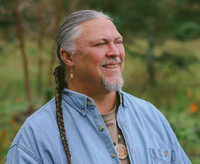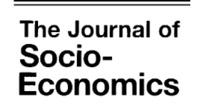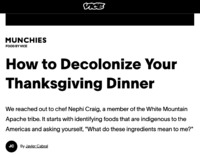Search
7 items
-
Decolonizing Thanksgiving
"As we head into the Thanksgiving holiday weekend in the United States, it’s great to think about all the things we can be grateful for. It is good to have a time to pause and reflect, to participate in the seasonality of gratitude for the year’s bountiful harvest, and to gather with family and friends. (We’ll ignore the über-consumerism of the day following Thanksgiving…)
Many of us probably know by now, however, that the story many of us learned in school about the first Thanksgiving is rather inaccurate at best, and racist and paternalistic in many ways, with a focus on the Manifest Destiny idea of the divine mandate for Europeans to conquer the “New World” in the name of Christ and country.
A few questions come to mind (at least my mind), for those of us with European-American roots, such as:
Should we even celebrate Thanksgiving, since it’s so tainted with colonialism?
What might it look like to “decolonize” our own understandings and our culture?
How can we do this work in a way that encourages our own folks to partner, rather than making them (our White brethren) feel further ostracized, but while also speaking real truth?
What can we do this Thanksgiving to begin to reconcile relationships damaged in the colonial era, both human to human and human to this land?" -
Ancient Judean Dates
A date tree planted in Ketura, Israel from 2000 year old seeds found at an archeological site in the Judean wilderness has finally bore fruit earlier this month (September 2020). The harvest was hailed a modern miracle of science. “In these troubled times of climate change, pollution and species dying out at alarming rates, to bring something back to life from dormancy is so symbolic,”... Date palms were praised in the Bible and the Quran, and became symbols of beauty, precious shade and succulent plenty. -
What Karl Marx has to say about today's environmental problems
Ted Benton, a Professor of Sociology at the University of Essex, writes about how Marx's theories can be applied to modern environmental issues such as climate change. He talks about how Marx's ideas about capitalism relate to current exploitation of nature, and specifically about soil degradation which was an issue during the 1860s when Marx was alive. He also includes problematic parts of Marx's attitudes towards nature, such as his praise of increased productivity of land that may have inspired Stalin. -
Overpopulation and the Lifeboat Metaphor: A Critique from an African Worldview
Many scientists have warned that the earth is nearing overpopulation or has already reached its carrying capacity. Garret Hardin proposed the lifeboat ethics metaphor to address this crisis and proper resource distributions. Okyere-Manu comments that this metaphor does not take into account the African political and cultural worldview. Hardin's metaphor is also reliant on inequality which disproportionately affects vulnerable communities. -
Religion and animal welfare: Evidence from voting data
This article, written by Julio Videras, works to analyze the factors that contributed to a 2002 ban on farming practices in Florida that were deemed cruel to pigs. Not only is religion taken into account (specifically Catholicism and Evangelical denominations), but political and socioeconomic factors are also considered. Videras argues that political affiliation and socioeconomic factors play more of a role in people's opinion of the ban than religious factors do. -
How to Green your Parish
This article is about the importance of parishes to participate in environmentally sustainable actions based on Pope Francis’s Laudato Si’. It encourages parishes to strive to become more eco-friendly by taking work together as a community and focusing on change one issue at a time. The article focuses on three main areas: reducing the parishes greenhouse gas, sustaining food and land use, and preserving water. -
How to Decolonize Your Thanksgiving Dinner
"If your favorite meats, legumes, vegetables, and fruits could talk to you this Thanksgiving, they would probably tell you all about the historical traumas that they've endured as they traveled and evolved through the Old World, New World, and finally as components in your favorite dish.
Welcome to the world of decolonial cuisine, a culinary movement with the goal of getting people with indigenous roots to honor their heritage through their dietary choices. In addition, the movement aims to simply allow people to become more conscious of where their food comes from and how it got there."







